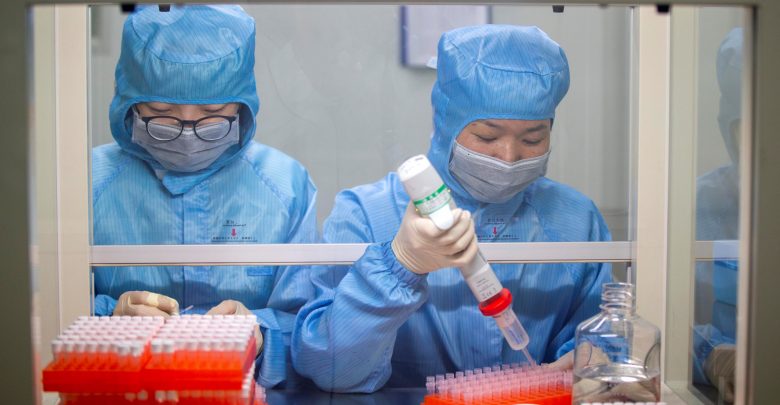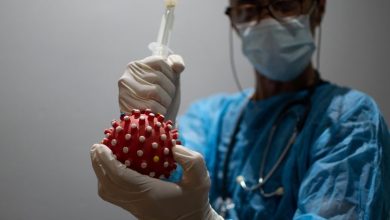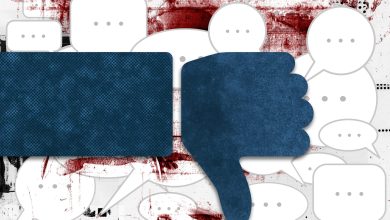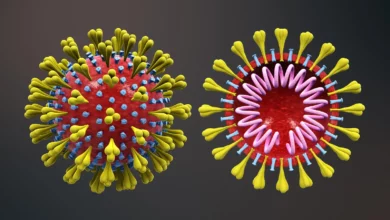
India has imported about 1 million COVID-19 test kits from China which many of the state governments using them to find out the number of people who are infected. But many reports of problems over the accuracy of test results have raised concerns among the different state governments
At least three Indian states have expressed dissatisfaction with the kits, with the northern state of Rajasthan refusing outright to use them.
Officials there said the state only had an accuracy of 5%. They added that they used the kits on patients who they already knew were positive, but the tests had shown a “negative” result.
The Indian Council of Medical Research (ICMR), the nation’s top biomedical research agency, said it was carrying out an investigation into the reports about faulty kits.
“The kits would be tested and validated by ICMR teams and an advisory on their use issued in the next two days. If they were found to be not up to the mark, replacements would be sought from the manufacturers,” ICMR chief Dr. R. R. Gangakhedkar said..
India currently relies on the real time reverse transcription-polymerase chain reaction (real time RT-PCR) method for detecting the virus. While the technique can deliver a reliable diagnosis, the whole process — from collecting nasal swab samples to testing — can take between 24 and 36 hours.
However, rapid tests deliver results within 15 minutes and work on blood samples instead of nasal swabs. They are also much cheaper.
Under India’s national health insurance scheme, only 500 million out of the country’s 1.4 billion population are eligible to undergo lab testing for free, with others having to pay 4,500 rupees ($59).
It’s not just in India. Test kits sent to Europe were faulty too
“Problems should be properly solved based on facts, not political interpretations,” Foreign Ministry spokeswoman Hua Chunying said. “In fact, when we first began fighting Covid-19 at home, some of the assistance China received was defective, but we chose to believe and respect the kind intentions of these countries.”
Spain too is seeking refunding for a second batch of 640k antigen test kits after the health officials found that the kits were not sensitive enough for detecting the virus. Spanish officials say the tests were bought via a Spanish distributor from Shenzhen Bioeasy Biotechnology, a company that China has admitted is not licenced for making them, according to a report by Reuters.
While ministry officials confirmed that the process for a refund has begun, they have yet to make public the price of the order, a Madrid-based newspaper reported.

Deaths in Spain are now almost levelling with that of Italy
Majority of the Coronavirus test kits are not proven if they work accurately, and many governments are holding off on buying them in large quantities until it’s clear, on which one has a 90% accuracy.
There seems to be muted response from many EU countries like Greece, Italy and France as it may seem that their partnership with China to help build the “health and silk road”.
The Czech Republic health care authorities and government members have said that the 300k quick tests purchased only worked if the patient is infected for a period of 5 days, while about 1 third were defective. He also tried his best not to mention the problems, but instead thanked the Chinese People’s Republic for being the only country who helped supply the material, without mentioning the EU.
Even Turkey had ordered a batch of several thousand test kits, and reported that around 35% of them were faulty, according to a senior official who had knowledge on the matter. After ordering from another Chinese supplier, the new test kits have been better with a 90% accuracy.
The Netherlands also had a problem with China and complained that the masks it was sent did not close over the face properly and that others had defective filters. Dutch officials had to recall tens of thousands of the ones they had already distributed to hospitals because they didn’t meet quality standards, the health ministry said in a March 21 statement.
In April, the Australian Border Force seized around 800,000 defective face masks it bought from Beijing worth $7.6 million following a video that went viral of a Chinese factory worker snickering as he rubbed the face masks on his shoe. People not only had a problem with the masks but also with how much China charged Australia for them. A senior government minister claimed the Chinese approach of jacking up the prices was borderline “extortion.”
So, based on many of these facts, it surely means that China, the country of origin of the Wuhan Coronavirus, should not be in a state to produce test kits for the rest of the world, as they could be literally infecting the world with the test kits alone. It would be great if countries other than China manufacture the rapid test kits, so that there is competition, and to stop China from having a monopoly in manufacturing these kits.





